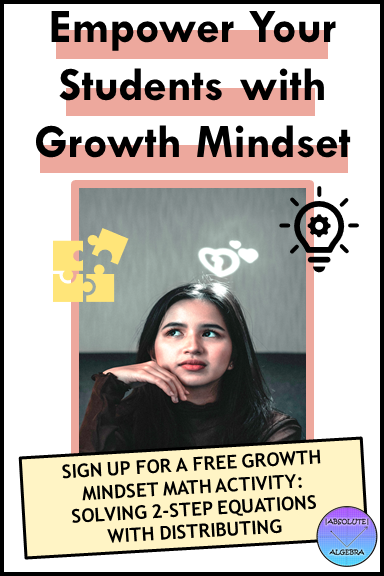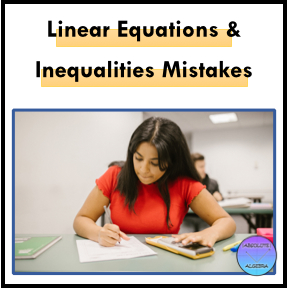
Do your students know what growth mindset means?
According to pyschologist Carol Dweck: “A mindset is a self-perception or ‘self-theory’ that people hold about themselves. Believing that you are either ‘intelligent’ or ‘unintelligent’ is a simple example of a mindset. People with a growth mindset believe that their most basic abilities can be developed through dedication and hard work. People with a fixed mindset believe that talent alone creates success without effort.”
Before trying these techniques, you and your students must “buy in”.
How does your brain work?
This growth mindset link shows a visual of how the brain works; a video showing the firing of neurons in the brain and how the brain can grow which explains how anyone can learn math, and a demonstration of how your neurons create stronger connections between pieces of information.
Click here for a video describing fixed vs growth mindset
Quotes

Here are some quotes from famous people. Talk about their meaning with your class. Relate them to real-life situations that either you or they have experienced. Remember, your students may not have ever learned this at home. You may be the first person to show them how valuable a positive mindset can be for their future.
- “Great works are performed, not by strength, but by perserverance.” – Samual Johnson
- “It does not matter how slowly you go so long as you do not stop” – Confucius
- “Anyone who has never made a mistake has never tried anything new.” – Albert Einstein
- “Patience, persistence and perspiration make an unbeatable combination for success.” – Napoleon Hill
- “Success is the ability to go from one failure to another with no loss of enthusiasm.” – Winston Churchill
- “The problem human beings face is not that we aim too high and fail, but that we aim too low and succeed.” – Michelangelo
How can you help your students?
- Decorate your classroom with posters and quotes about growth mindset. You can have them make their own posters using a quote that they relate to.
- Teach them how to struggle. Students may not have ever had a chance to work through a difficult concept without giving up. They need to be able to feel failure before they can realize that they may need to struggle to defeat it.
- Teach the power of ‘yet’. The way your students word things in their own minds is powerful in order to change their view of learning. Instead of saying. “I can’t multiply fractions.” The student can say “I can’t multiply fractions YET.” Then help them discover ways to learn how to multiply fractions. It might be a different way than a traditional approach, but when they watch you try new strategies to learning, they will grasp new ways also.
- Celebrate their successes and have them celebrate the successes of others. If a student learns a new concept that was difficult for them, celebrate it. Have the other students in the class congratulate them so you can create a community of people that appreciate each other.
- Make success boards. Give students construction paper or manilla folders. Every week have them draw or write personal examples of successful learning. Then have them reflect on their achievements so they can see their own growth!
- Create a posterboard showing the differences between a growth and a fixed mindset. If you hear a fixed mindset statement in class, write it down. Brainstorm ways to re-word that statement so it becomes a growth mindset statement.
- Reflect when making a mistake. When a student makes a mistake on a problem, you may want to ask him/her questions to prompt a way for the student to think about what they did wrong. Then discuss how they might correct it so they don’t make the same mistake in the future. Some questions you may want to ask: Why do you think you made the mistake? How can you avoid that mistake in the future? What steps were you taking to solve the problem? Were you missing any steps? How do you know?

Here are some math resources.
Middle School Growth Mindset Activities
- Modeling Percents, Decimals, and Fractions Activity
- Metric and Customary Conversions Activity
- Writing and Solving One-Step Equations Activity
- Rationals: Classify, Order, Compare Growth Mindset Activity and Paper Chain
- Middle School Math Growth Mindset Bundle
High School Growth Mindset Activities
- Solving Multi-Step Equations Activity
- Multiplying Polynomials Winter Themed Activity
- Radical Operations Activity
- Converting to Vertex Form by Completing the Square Activity
- Algebra I Growth Mindset Bundle
Click Here for a FREE Growth Mindset Activity on Solving Two-Step Equations with Distributing
How do you use growth mindset with your students?
Let me know in the comments below.





